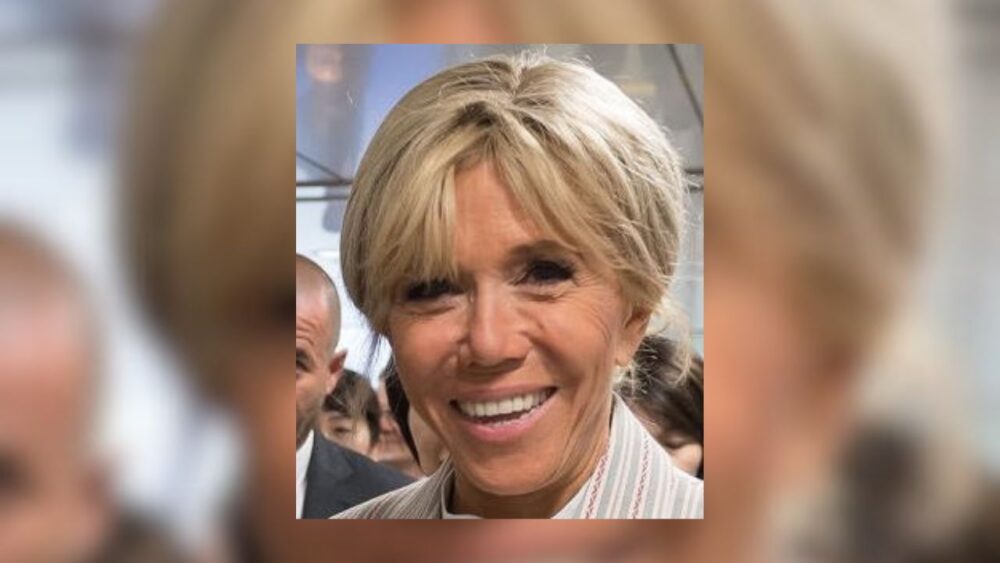A Paris court began proceedings Monday against ten people accused of posting or sharing online allegations that French First Lady Brigitte Macron was born male and of making “malicious” comments on social media.
According to the Paris prosecutor’s office, eight men and two women allegedly made repeated remarks about the first lady’s “gender” and “sexuality” and referenced her 24-year age gap with President Emmanuel Macron as “pedophilia,” AP News reported.
Seven defendants appeared in court, while the remaining three were represented by lawyers. The group includes an elected official, a teacher, and a computer scientist.
Prosecutors said the alleged harassment led to “a deterioration of her physical and mental health.”
Among the defendants, Delphine Jegousse, 51, known online as “Amandine Roy,” is accused of playing a major role after releasing a four-hour YouTube video in 2021. Another defendant, Aurélien Poirson-Atlan, 41, known on social media as “Zoé Sagan,” reportedly lost access to his X account last year after judicial authorities linked him to multiple investigations.
The claims — which have circulated online for years — allege that Brigitte Macron was born male under the name Jean-Michel Trogneux, which is actually her brother’s name.
Macron did not attend the two-day trial, which began Monday afternoon in Paris. Judges are expected to announce a verdict at a later date.
The case follows earlier legal actions over the same allegations.
In September 2024, Brigitte Macron and her brother won a defamation ruling against two women who spread the claims, but a Paris appeals court overturned that decision in July. The Macrons have appealed to France’s highest court.
U.S. Lawsuit Against Candace Owens
As previously reported by The Dallas Express, the Macrons also filed a defamation lawsuit in July in Delaware against American commentator Candace Owens, her company Candace Owens LLC, and GeorgeTom Inc.
The suit alleges Owens spread the same claims — allegations the Macrons’ attorney has said are untrue — and ignored “credible evidence” to promote “known conspiracy theorists and proven defamers.”
The Macrons’ attorney, Tom Clare, told the BBC’s Under Fire podcast that Brigitte finds the allegations “incredibly upsetting.” He confirmed that the French First Lady will present “photographic and scientific” evidence to counter the claims, including photographs of her pregnancies and expert testimony that is “scientific in nature.”
“It is a process that she will have to subject herself to in a very public way,” Clare said. “But she’s willing to do it. She is firmly resolved to do what it takes to set the record straight.”
Owens, who has nearly 7 million followers on X and over 4 million YouTube subscribers, said earlier this year she would “stake [her] entire professional reputation” on her allegation. Her attorneys have since filed a motion to dismiss, arguing that the Delaware venue would cause “substantial financial and operational hardship.”
Broader Free Speech Debate Across Europe
The French trial has reignited questions about how far governments should go in policing speech online. France’s cyberbullying statutes allow for criminal penalties — not just civil liability — in cases deemed to cause “psychological harm.”
Critics argue that the Macron case illustrates how those laws can be used to silence controversial or offensive expression. Supporters counter that targeted online harassment deserves legal consequences.
Similar debates are unfolding in the United Kingdom.
Social-media platforms and civil liberties groups have criticized the government’s new Online Safety Act for expanding government control over digital speech.
Elon Musk’s X said the law’s “laudable intentions” are being overshadowed by its “breadth of regulatory reach,” warning that it could “increase censorship in the name of ‘online safety,’” according to Reuters. The UK government rejected that view, saying the act protects both safety and free expression.
The U.S. Course Correction
The issue has also surfaced in the United States, where tech companies have faced scrutiny for cooperating with federal agencies to limit online content.
Meta CEO Mark Zuckerberg publicly acknowledged in 2024 that the FBI had influenced Facebook’s moderation decisions during the 2020 election cycle — a relationship he said “undermined trust.”
In January 2025, Zuckerberg announced that Meta would end its third-party fact-checking program and replace it with a crowd-sourced model similar to X’s “Community Notes.”
“Fact-checkers have been too politically biased and have destroyed more trust than they’ve created,” Zuckerberg said in a video message announcing the policy shift.
The decision followed criticism from President Donald Trump and congressional leaders who accused major social platforms of engaging in systematic political censorship.
A Global Speech Reckoning
From Paris courtrooms to London regulators to Silicon Valley boardrooms, governments and tech executives are wrestling with the same question: Where is the line between public safety and free speech?
For the Macrons, that debate has become deeply personal — one that now spans both sides of the Atlantic.
Emmanuel Macron, 47, has been France’s president since 2017. The couple, married since 2007, first met when he was a student and she was a teacher in Amiens, France.


